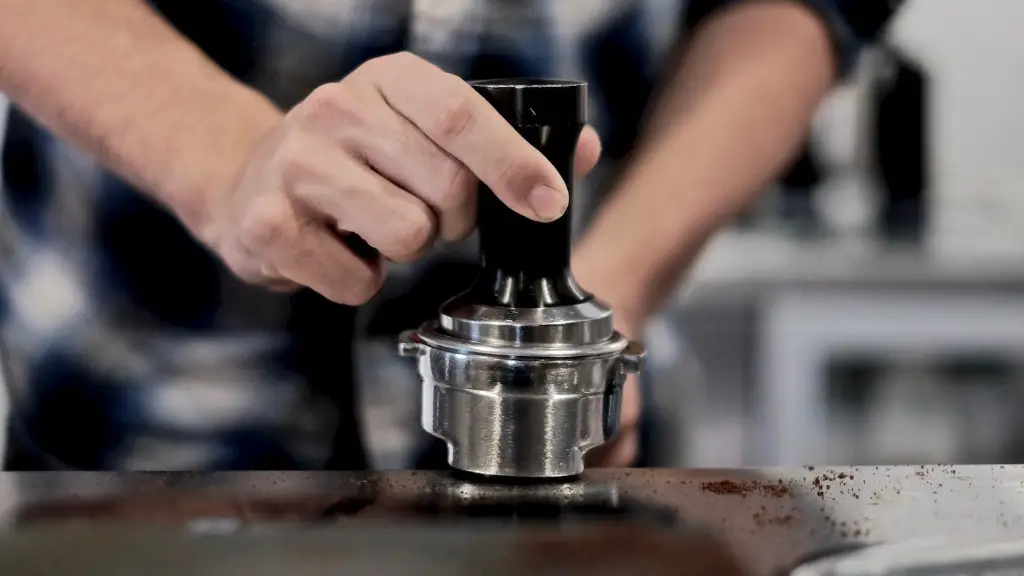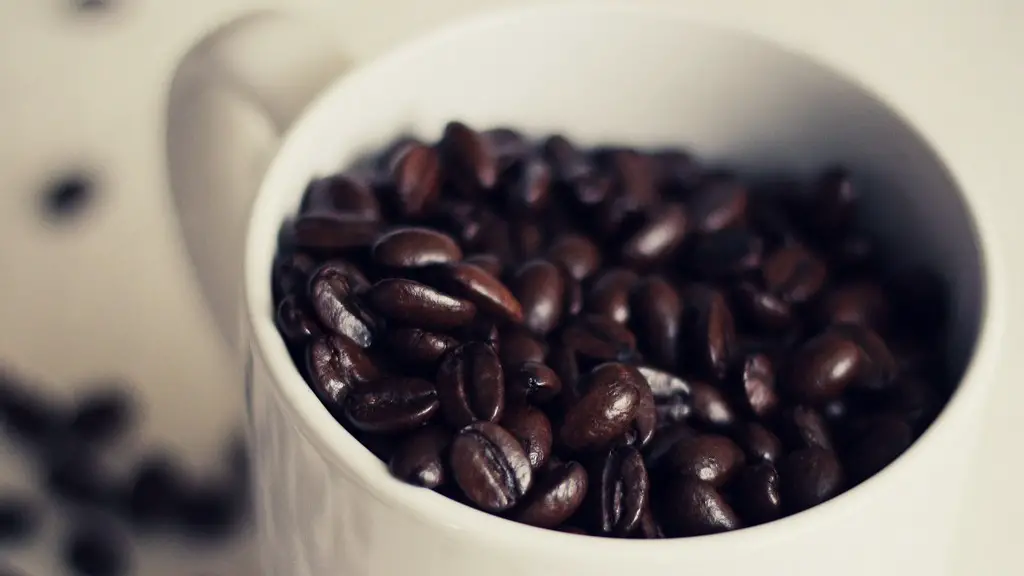It’s no secret that coffee consumption is an integral part of many people’s daily rituals. To some, this beloved beverage is a mere commodity; however, to others, it’s a source of solace, comfort and enjoyment. But what if drinking coffee gives you an unexpected, painful side effect: heart palpitations?
This phenomenon is known as “caffeine-induced cardiac arrhythmia,” a condition in which your heart’s rhythm becomes irregular, sometimes leading to chest pain or discomfort. According to Dr. David L. Katz, a preventive medicine specialist and cardiologist at CheckUp America, “inside the cells of the heart, caffeine has a physiological effect, blocking the uptake of adenosine, a molecule that is crucial for proper functioning of the heart. The result is that the heart rate can increase, and a weird, lub-dub-dub, instead of a lub-dub rhythm may arise, with sometimes-disconcerting sensations.”
In modest amounts, the interference that caffeine causes is usually benign and the arrhythmias subside quickly. However, when consumed in higher quantities, it can be more problematic. Interestingly enough, cardiac arrhythmias can also be caused by physical activities such as weightlifting and running; however, the extra sensitivity to caffeine can make this condition more prevalent in those who enjoy their morning cup of joe.
So why do some people experience these heart palpitations while others don’t, even after the same amount of coffee? Well, all individuals have unique body chemistries, including distinct gene pairs that influence caffeine metabolism. Moreover, those who have underlying heart conditions can also be more susceptible to the adverse effects of caffeine. Thus, it’s important to take into consideration these factors whenever you consume coffee.
According to Dr. John Higgins, a cardiologist at the UT Health Science Center at Houston and Medical Director at Palmetto Primary Care Physicians, there are a few steps you can take to mitigate the effects of caffeine-induced heart palpitations. He suggests drinking more water throughout the day in order to dilute the caffeine in your system and recommends decreasing your overall caffeine intake in the morning. Furthermore, staying away from sugary drinks, as they can lead to a higher heart rate and irregularity, can also be beneficial.
Although consuming larger amounts of coffee can lead to caffeine-induced arrhythmias and chest pain, it doesn’t mean you should forgo coffee entirely. Knowing the signs of heart palpitations and being mindful of the number of coffee drinks you’re consuming daily can help you identify the ideal coffee dosage for your body and keep you from distress.
Effects on Exercise
There is also evidence that drinking coffee before exercise can actually have a positive effect, as long as you don’t exceed your daily caffeine limit. According to Procter & Gamble’s Heart Health brand, “a moderate amount of caffeine can improve exercise performance and help people to exercise longer and harder.” Caffeine is believed to increase your heart rate, bringing more oxygen to the muscles and limbs, leading to improved performance during workouts. It has also been proven to act as an anaerobic performance enhancer, as it assists your body in using stored fat as fuel. Moreover, consuming coffee before physical activity can reduce muscle pain and fatigue during the workout, allowing you to be physically active for longer.
While moderate caffeine consumption can be beneficial for exercise, it does have its limitations. “You definitely don’t want to have too much,” warns Josh Sendez, an exercise physiologist at the Miami Cardiac and Vascular Institute. He recommends that good rule of thumb is to limit your caffeine intake to no more than 3 mg per pound of body weight (or 400 mg). Anything over this amount can leave you feeling jittery and anxious, and can cause dehydration and an irregular heartbeat, making it difficult to exercise.
In essence, maintaining the recommended levels of caffeine could be just the key to getting the most out of your workout without the added risk of experiencing caffeine-induced heart pain or arrhythmias.
Lifestyle Changes
There are additional lifestyle changes you can make to reduce your likelihood of experiencing adverse effects from coffee. First and foremost, Dr. Higgins recommends avoiding coffee or any other caffeinated beverage before bedtime, as it can potentially lead to trouble sleeping and even nighttime anxiety attacks.
Secondly, if you’re going to drink coffee, try to get it from natural sources such as ground, cocoa, or teas. In addition, watch out for pre-mixed coffee drinks as they typically contain a lot of added sugar, which can also lead to heart palpitations. Instead, aim to make your own cup of coffee, as it can be healthier and save you money in the long run.
Above all, stay mindful of your overall caffeine consumption and take note of any changes or reactions you may experience. If you’re feeling any discomfort, chest pain, or even a fluttering sensation in the chest, it may be best to avoid any further caffeine consumption and consult a doctor.
Alcohol Consumption
Another lifestyle change to consider when it comes to mitigating the effects of caffeine-induced cardiac arrhythmias is to reduce, or even eliminate, your alcohol consumption. Unlike coffee, alcohol is known to slow down your reaction time, which can lead to an increase in heart rate and blood pressure. An excessive amount of alcohol paired with regular caffeine consumption could be a recipe for disaster, as the two can have an amplified negative effect on your body.
The same goes for smoking. According to the American Heart Association, smoking can cause an increase in heart rate, as well as damage to your arteries. Cigarettes are known to reduce the amount of oxygen your heart receives, which can cause chest pain, and further increase your risk of heart palpitations.
Ultimately, while it’s important to be mindful of your consumption of all substances — including caffeine — it shouldn’t disqualify you from enjoying your favorite cup of joe. With the right precautions and lifestyle changes, you can still incorporate this beloved beverage into your day without fear of experiencing heart palpitations or chest pain.
Caffeine Sensitivity
Not all people can tolerate the same amount of caffeine, so it’s important to pay attention to your body’s signs of distress before consuming any coffee. Caffeine sensitivity is determined by a variety of factors, including your genes, sex, body weight, and health status.
Individuals who are considered highly sensitive to caffeine are advised to limit their consumption to less than 400 mg per day, while moderately sensitive individuals can drink up to 600 mg per day. That’s the equivalent of 4-6 cups of coffee a day without experiencing adverse reactions.
Also, sleep deprivation can lead to increased susceptibility to stimulants. Lack of sleep can cause your cells to become more sensitive to the effects of caffeine, resulting in more pronounced and uncomfortable cardiac arrhythmias.
Ultimately, while drinking coffee can be a great way to start the day, it’s important to understand why it can be problematic for some people, and how to identify if that’s the case for you.
Nutrition Strategies
An often overlooked factor that can aid in reducing caffeine-induced cardiac arrhythmias is the quality and type of food you consume. Just like how certain foods can make you feel energized and alert throughout the day, certain foods can also help you keep your caffeine levels under control.
According to Jennifer Wilkins, a nutrition professor at Cornell University, “complex carbohydrates—those that are low on the glycemic index—can help you balance your caffeine levels. Foods like steel-cut oats, quinoa, apples, oranges, and bananas are excellent sources of slow-digesting carbohydrates that can help you manage your caffeine intake.”
Furthermore, including protein and fat in your meals can also help you avoid any sudden swings in your heart rate. “A small amount of protein and fat can slow the absorption of caffeine in your body and reduce its effects,” explains Wilkins.
If you’re someone who drinks coffee every day, implementing nutrition strategies into your lifestyle can be an effective way to make sure you never consume too much caffeine and to ensure that you’re not experiencing heart palpitations or chest pain.
Conclusion
While drinking coffee can be an enjoyable and indulgent experience for many, it doesn’t come without risks, particularly for those with increased sensitivity to caffeine. Fortunately, there are steps you can take to mitigate these risks, by understanding the effects of caffeine, knowing your limits, and being mindful of your lifestyle choices. With the right precautions and natural lifestyle changes, you can keep your daily cup of joe, minus the heart palpitations.





